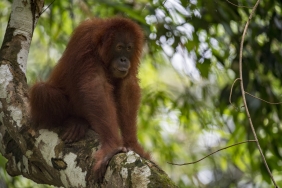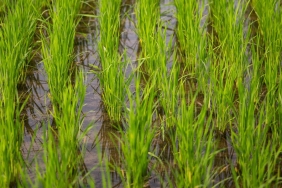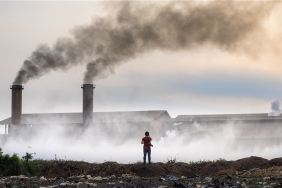LAND RESTORATION SCHOOL ESTABLISHED IN JAMBI: AGROFORESTRY EDUCATION FOR OIL PALM RESTORATION
WWF-Indonesia together with Pundi Sumatera Foundation, Jambi University, Gadjah Mada University, and Brawijaya University organized a School of Jurisprudence (SJB) activity at the Faculty of Agriculture, Jambi University. This activity was attended by 19 participants consisting of representatives of the Jambi Provincial Forestry Service, academics, and local farmer groups, namely the Bungo Pandan and Setia Jaya Mandiri Farmer Groups.
The Jangka Benah School was established as a joint effort to address the issue of the persistence of oil palm plantations in forest areas that have caused serious ecological and economic impacts. This effort aims to build technical, social and policy understanding in the gradual application of the oil palm agroforestry concept as part of the Jangka Benah solution. This activity also became the initial momentum in the development of the Jangka Benah School demonstration plot as a form of accelerating implementation and educational facilities as well as strengthening multi-stakeholder collaboration in Jambi Province.
The effort to implement a long-term improvement strategy through WWF-Indonesia's collaborative program with various elements (Sekolah Jangka Benah Program), began with a briefing session in the form of a theater workshop. The first material was delivered by Bambang Yulisman, S.Hut., M.Si. as the Head of the Social Forestry Division of the Jambi Provincial Forestry Service who explained the mechanism for applying for a permit, the rights and obligations of permit holders, and post-permit land management in the Social Forestry scheme. In his presentation, he explained that Social Forestry is a forest management system by communities or customary law communities to improve welfare while maintaining environmental balance. The license application mechanism differs depending on the form of social forestry proposed, such as Village Forest, Community Forest, Community Plantation Forest, Forestry Partnership, and Customary Forest. In addition to explaining the rights and restrictions of permit holders, Bambang also emphasized the importance of area structuring, management plan preparation, business development, tenurial conflict resolution, mentoring, and environmental partnerships as part of post-permit management.
The next presentation was delivered by Dr. Forst. Bambang Irawan, SP., M.Sc., IPU who explained the concept and management techniques of oil palm agroforestry based on field experience. He described the great potential of agroforestry systems in increasing the economic value of forest land, which is still very low. The types of plants that have high economic value such as durian, coffee, essential oils, avocado, and other forestry plants were mentioned as superior commodities that can be combined with oil palm. He also explained planting techniques, fertilization, pest and disease control, as well as lighting arrangements to support optimal plant growth in oil palm mixed forest systems.
As part of the hands-on exercise, participants were asked to fill out a form and try to develop a technical draft of the Benah Term Strategy. This aims to train farmers in planning technical interventions for forest rehabilitation through a long-term approach. The discussion session was interactive with many questions and real experiences from the field raised by the participants and answered directly by the resource persons. The spirit of collaboration and enthusiasm shown by the participants was a positive ending to the first day of school. It is hoped that this program can become an important milestone in realizing the restoration of sustainable forest areas in Jambi Province and become a model for replication in other areas with similar problems.




